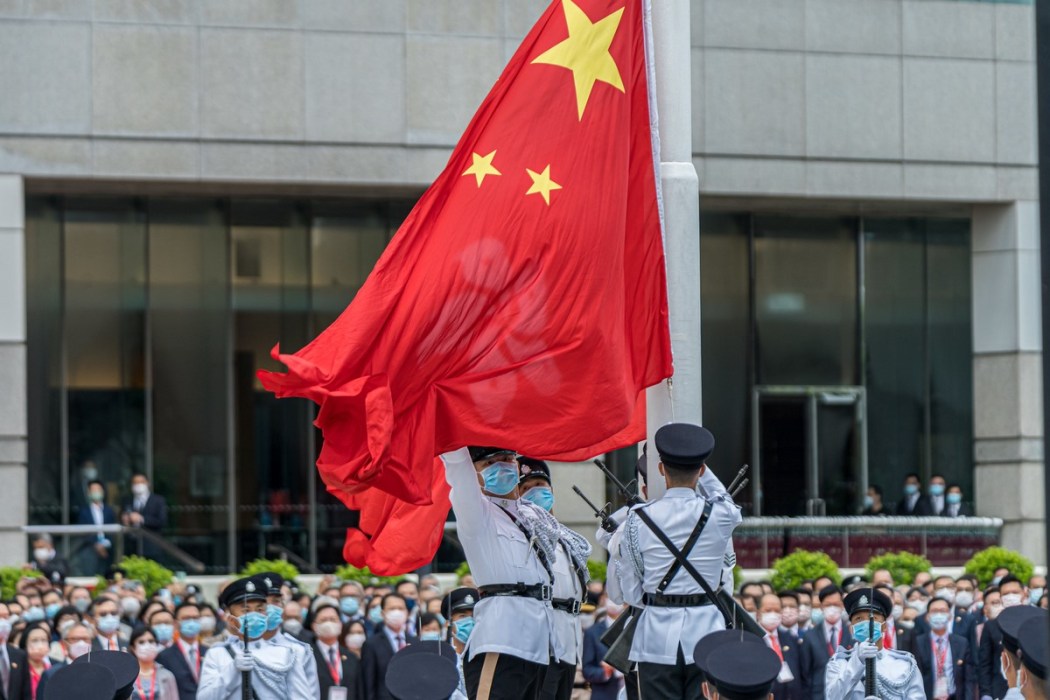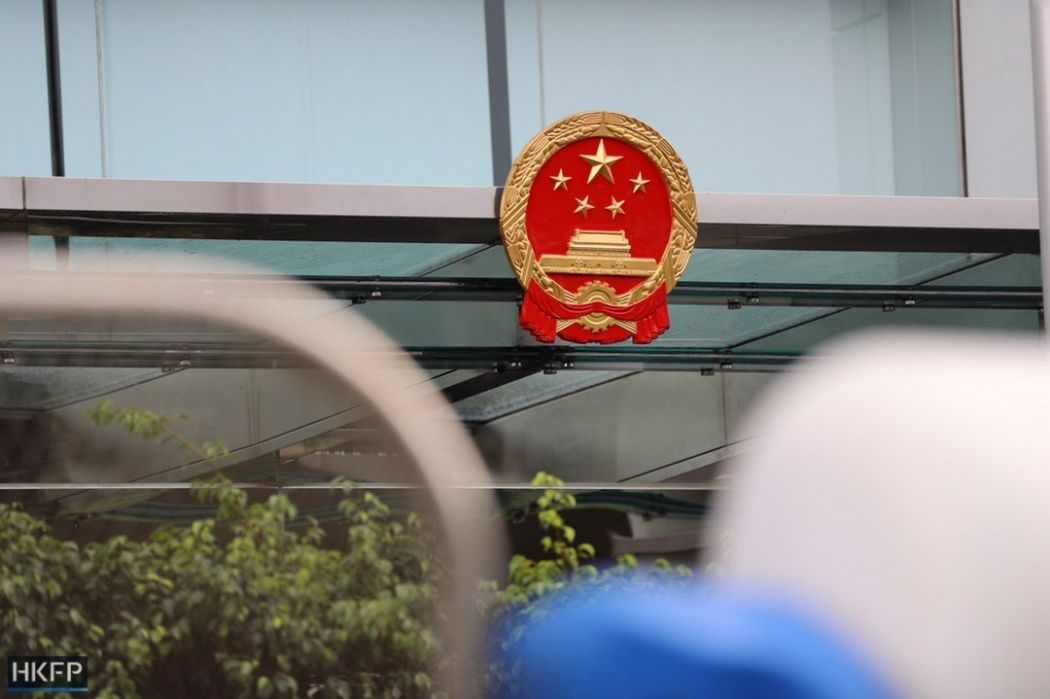Lawmakers in Hong Kong have passed a bill that outlaws the desecration of the Chinese national flag and national emblem on the internet. The new law also stipulates requirements for primary and secondary education on what the government described as important national symbols.
Amendments to the National Flag and National Emblem Ordinance were passed in the Legislative Council on Wednesday with full support from pro-establishment legislators. The new law aims to ensure the proper use of, and “preserve the dignity” of, the national flag and national emblem, as well as boosting a sense of national identity among Hongkongers and promoting patriotism.

Secretary for Constitutional and Mainland Affairs Erick Tsang said the authorities made reference to the National Anthem Law and included “clearer provisions” on offences linked to insulting the national flag and emblem. The fundamental principle of the new law was to show respect for the country, the minister said, and to pose a deterrent for those who intentionally desecrate the national flag and emblem.
“As long as citizens have no intention of insulting the national flag and national emblem, there is no need to worry,” Tsang said.
The bill was first presented in the Hong Kong legislature on August 18, after China’s top legislative body endorsed amendments to the National Flag Law and National Emblem Law in the mainland in October last year.

Under the new law, a national flag or a national emblem must not be displayed upside down, or used in any way that the authorities deem as “undermining the dignity” of the flag and emblem. It retained the same penalties for people who “publicly and intentionally desecrating” the national flag or emblem. They could face a maximum fine of HK$50,000 and three years behind bars for burning, mutilating, scrawling on defiling or trampling the national flag and the national emblem, and for publishing such acts.
“In effect, public and intentional desecrating acts in relation to the national flag and
national emblem committed in both real life and the virtual world would be an offence,” a LegCo document read.
Authorities will be given extended time to press charges, as they said police need sufficient time to investigate the behaviour that may involve the use of the internet and social media. Suspects can be prosecuted a year after the offence was discovered by police, or two years after the offence was committed, whichever is the earlier.
Lawmakers hail law
Lawmakers threw their weight behind the amendments, saying enacting such legislation was a “basic constitutional duty” of Hong Kong. Priscilla Leung of the Business and Professionals Alliance for Hong Kong said citizens should have shown respect for their country “from the bottom of their heart” without implementing rules and regulations.

But it was “distressing” to see some people openly trampled and burned the national flag, Leung said, after some protesters defaced the national emblem outside the China Liaison Office during the 2019 unrest. She said the authorities had no choice but to legislate against such acts.
“[S]ome people in Hong Kong publicly and deliberately did such uncivilised behaviour to insult their own country… it can only be solved by legislation,” the barrister said.
Another lawmaker, Chan Kin-por, blamed the “absurd acts” of insulting the national flag and emblem on the opposition and “anti-China” media in Hong Kong. He said the opposing camp had emphasised the importance of Two Systems, and downplayed the One Country principle.

National education provided by local schools had only “touched the surface,” Chan said, resulting in a lack of understanding about the country among young Hongkongers.
“They don’t understand the patriotic sentiment. Instead, they are constantly misled by anti-China, disruptive Hong Kong media – some youngsters don’t know they are Chinese,” he said, adding it was time for the city to launch national education after “black-clad violence” was “rooted out.”
The legislature is dominated by pro-Beijing voices after democrats quit en masse last year. Most of the opposition have been jailed, are held in remand, have left politics, or have gone into self-exile abroad.
Support HKFP | Policies & Ethics | Error/typo? | Contact Us | Newsletter | Transparency & Annual Report | Apps
Help safeguard press freedom & keep HKFP free for all readers by supporting our team
























